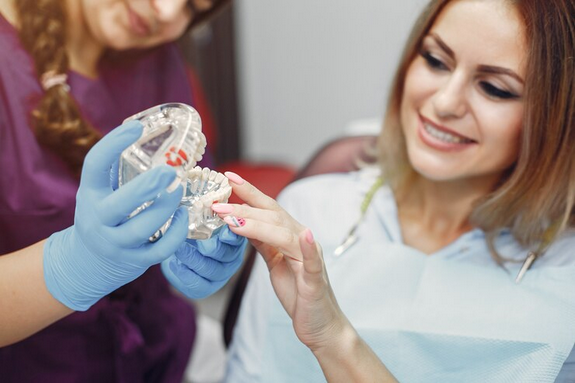Introduction
Dental emergencies can strike at any time, causing pain, discomfort, and anxiety. When faced with sudden dental issues, knowing how to navigate emergency dental care becomes crucial. This article delves into the importance of swift action, common dental emergencies, and essential steps to take in those critical moments.
The Significance of Swift Action
In the realm of dental emergencies, time is of the essence. The sooner one seeks professional assistance, the better the chances of preserving oral health and preventing further complications. Dental emergencies can escalate rapidly, leading to severe consequences if left unattended. Immediate action not only mitigates pain but also ensures a prompt diagnosis and intervention, potentially saving teeth and preventing long-term damage.
Common Dental Emergencies
Understanding the nature of common dental emergencies is the first step in navigating these critical situations effectively.
Toothache:
A persistent toothache can indicate various underlying issues, such as cavities, infections, or dental abscesses. Over-the-counter pain relievers and avoiding hot or cold foods can offer temporary relief, but consulting a dentist promptly is crucial to address the root cause.
Chipped or Broken Tooth:
Accidents or trauma can lead to chipped or broken teeth. It's essential to collect any broken pieces and rinse the mouth with warm water. Applying a cold compress can help reduce swelling, and immediate dental attention is necessary to assess the extent of the damage.
Knocked-Out Tooth:
A knocked-out tooth requires rapid action for the best chance of successful re-implantation. Hold the tooth by the crown, gently rinse it, and try to reinsert it into the socket. If this isn't possible, placing it in milk or a tooth preservation kit can help preserve the tooth until professional help is sought.
Lost Dental Filling or Crown:
Losing a dental filling or crown can expose sensitive tooth structures. Avoiding hot or cold foods and using over-the-counter dental cement for temporary coverage can provide relief until a dentist can address the issue.
Abscess:
Dental abscesses are pockets of pus that can cause severe pain and swelling. Warm saltwater rinses and over-the-counter pain relievers may provide temporary relief, but professional intervention is essential to drain the abscess and address the underlying infection.
Essential Steps in Emergency Dental Care
Contacting a Dentist:
The first and most crucial step in any dental emergency is to contact a dentist immediately. Many dental offices set aside time for emergency cases, emphasizing the importance of prompt communication. Provide a detailed description of the issue to help the dentist assess the urgency and provide guidance.
Managing Pain:
While awaiting professional help, managing pain becomes paramount. Over-the-counter pain relievers, cold compresses, and avoiding triggering foods or beverages can help alleviate discomfort. It's essential to follow dosage instructions carefully and consult with a healthcare professional if there are any concerns.
Preserving Knocked-Out Teeth:
In the case of a knocked-out tooth, preserving it properly is crucial. Reinserting the tooth into the socket is the best option, but if that's not possible, placing it in milk or a tooth preservation kit helps maintain the tooth's viability. Avoid touching the tooth roots and handle it by the crown.
Temporary Fixes:
Some dental emergencies may benefit from temporary at-home measures. Using over-the-counter dental cement for lost fillings or crowns, avoiding certain foods, and maintaining good oral hygiene practices can help mitigate the impact of the emergency until professional assistance is available.
Conclusion
In the face of a dental emergency, swift and informed action can make all the difference. Understanding common dental emergencies, taking immediate steps to manage pain, and promptly contacting a dentist are crucial elements of effective navigation through these situations. By prioritizing oral health and seeking timely professional intervention, individuals can minimize the impact of dental emergencies and pave the way for a swift recovery. Remember, when every second counts, a proactive approach ensures the best possible outcome for your dental well-being.





Comments